This blog is in collaboration with Terkel
What is one way for an executive to reduce their burnout? How can this strategy help restore health and improve the overall happiness of an executive?
To help executives reduce their burnout, we asked business professionals and leaders this question for their insights. From working out first thing in the morning to prioritizing personal health, there are several ways executives can restore their health and improve their overall happiness at work.
Here are nine strategies for reducing burnout and restoring your health:
- Take Time for Yourself
- Workout First Thing in the Morning
- Find the Flow State
- Take a Timeout with a Retreat
- Follow Strict Work Hours
- Prioritize Personal Health
- Have Obligatory Daily Blackout Hours
- Don’t Forget to Delegate
- Improve Your Coping Flexibility
Take Time for Yourself
As an executive all eyes are on you, you set the pace and the tone for the organization. With that added pressure, taking time to prioritize yourself is crucial in mitigating burnout.
When you take PTO leave an out-of-office message, and truly unplug from work. Don’t be afraid to utilize the resources that are available to you through your organization – they work, and they’re there for a reason. When you’re looking at your email at 10:15PM, think about if you really need to be doing that, or if those emails could wait until the morning. While these may be small, they will make a difference in improving your overall wellbeing.
Linda Saggau, R3 Continuum
Workout First Thing in the Morning
Working out first thing in the morning is a great way for an executive to reduce burnout. It can be tempting to be swept up by the first emails of the day, but taking the time to center yourself with a workout will pay dividends.
Research shows that working out reduces stress, improves your circadian rhythm, and increases productivity. Working out also releases mood-boosting serotonin and dopamine. A short, vigorous morning workout can ward off burnout and set you up for success all day.
Wesley Jacobs, Apollo Medical Travel LLC
Find the Flow State
Discovering this zone can directly contribute to the use of your time. It helps you reach an optimal state of consciousness when you feel and perform your best. If you haven’t been able to feel this, then take breaks and take care of your creative health until you are able to perform at your highest.
The biggest tip that helps me find this is to structure similar tasks together. Different tasks require a different level of thinking, so when you work on related tasks, you help your brain focus easier as you go throughout the day. It’s really made a difference when making sure our employees have what they need to stay productive and avoid burnout.
Daniel Kane, The Ridge Wallet
Take a Timeout With a Retreat
One thing I do to reduce the feeling of burnout is to attend a personal development or transformational type of retreat a couple of times per year. Developing my mind, getting quiet in a structured way, and connecting to my inner power helps me to fill my cup and increases my overall happiness.
I look for retreats based in beautiful settings, have planned inner work, or are uplifting and motivational. After a three to five day retreat, I come back to my work energized with a renewed sense of purpose.
Jenn Christie, Markitors
Follow Strict Work Hours
Enforcing strict work hours will help reduce executive burnout because it deters executives from doing small tasks that can take up a lot of time. It’s easy to get caught up in returning emails and finishing up tasks for the day.
When executives cut off their work hours at the office, it gives them time to relax and recharge at home. This decreases stress and improves their workplace satisfaction which helps them to serve as better leaders.
Payel Gupta, Cleared
Prioritize Personal Health
One of the best ways for executives to reduce their burnout is to ensure they are taking care of their bodies and minds. A healthy diet, good exercise habits, and good sleep habits are all things that contribute to daily bandwidth. When executives are making an effort to stay healthy on a daily basis, burnout is less likely to occur. The process not only increases endurance but provides the executive with knowledge of what does and does not give them energy.
Jeff Meeks, EnergyFit
Have Obligatory Daily Blackout Hours
Whether you are working from home or in the office, being an executive can feel all-encompassing and draining. To prevent burnout, I recommend initiating daily blackout hours. In essence, between certain times of the day or night, no emails, Slack notifications, or work messages can be sent. This will allow you to stay present in the moment, all the while maintaining a more consistent work-life balance.
James Ville, GunSkins
Don’t Forget to Delegate
Outsource and delegate everything you possibly can. This isn’t about laziness, power trips, or other nefarious motivations. It is all about freeing up the necessary time to focus on the work that matters the most.
One of the biggest culprits of burnout is not only long hours, but also the stress that comes with the ambition of trying to do everything by oneself. A wise leader however, knows when it pays to delegate the more repetitive and redundant tasks to focus on the macro level decisions.
It’s up to you to envision and bring to life the overarching strategy for your team or organization. This higher-level thinking takes time, creativity, and focus, which are all often lost when you’re too overwhelmed.
So ruthlessly triage until you get to the point where you’re no longer overwhelmed. This, in turn, will yield gigantic returns with a calmer mind, less stress, and a more upbeat outlook.
Peter Bryla, ResumeLab
Improve Your Coping Flexibility
Research has found that strengthening our coping flexibility is the most effective strategy. In other words, we must adopt a variety of coping methods that are suitable for different situations. When work pressure is very high, the source of stress is likely to be uncontrollable, such as facing difficult customer conflicts, having to work night shifts for an extended time, etc.
Adopting a response that focused only on the problem, such as avoidance, was not as effective. Choosing a coping mechanism that focuses on emotions may be more effective.
Abby Ha, WeLLPCB
Terkel creates community-driven content featuring expert insights. Sign up at terkel.io to answer questions and get published.







